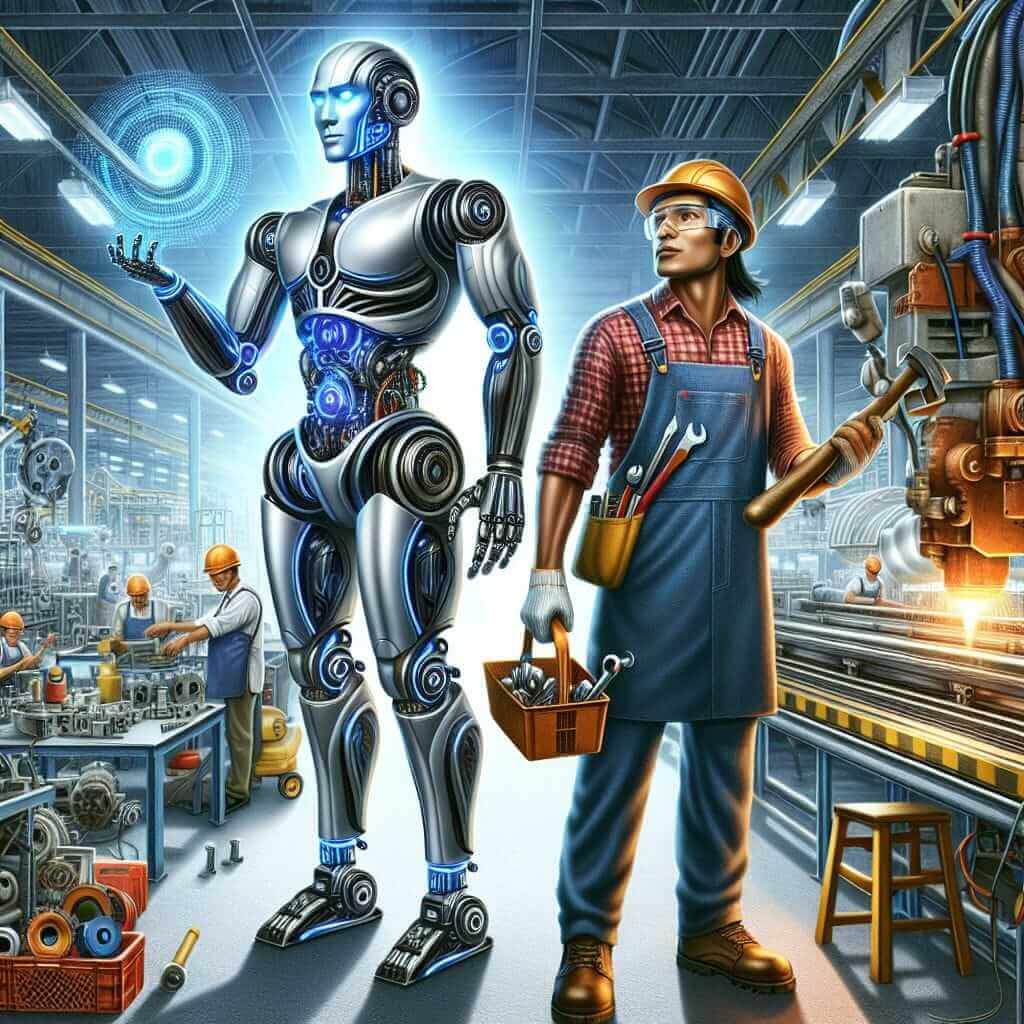The IELTS Reading section is a crucial part of the IELTS exam, assessing your ability to read and comprehend various types of texts. One recurring theme in these exams is economic issues, including the impact of automation on income inequality—a topic both timely and significant. Historical data suggest that such topics have appeared frequently in past IELTS exams, given their relevance in today’s rapidly changing job market. Therefore, understanding this topic can not only prepare you for the Reading section but also keep you informed about current global trends.
Practice Reading Text: Medium Level
Automation and Income Inequality
Automation, the use of technology to perform tasks without human intervention, has transformed industries and economies around the globe. While automation has undoubtedly increased productivity and efficiency, it has also contributed to growing income inequality. This phenomenon occurs primarily because automation displaces low-skilled workers while creating opportunities for high-skilled workers, further widening the wage gap.
Historical Context
Since the Industrial Revolution, automation has played a role in shaping labor markets. Initially, machines replaced manual labor in agricultural and manufacturing sectors. More recently, advancements in artificial intelligence and robotics have automated complex tasks in sectors like finance, healthcare, and even creative fields. These technological shifts have led to significant economic restructuring, benefiting those with the skills to adapt and leaving behind those who cannot.
Modern Impact
In today’s world, industries such as manufacturing, retail, and logistics heavily rely on automated systems. For instance, companies like Amazon use robots for sorting and packaging, reducing the need for human workers. While this increases operational efficiency, it often results in job losses for low-skilled workers. On the other hand, highly skilled workers who can design, program, and maintain these automated systems find themselves in high demand, often commanding substantial salaries.
Socio-Economic Implications
The socio-economic impact of automation is profound. Countries and regions that invest in technology and higher education tend to benefit more from automation, while those with less investment experience greater job displacement. This divergence magnifies income inequality not only within but also between countries. Policymakers are thus faced with the challenge of finding a balance between embracing technological advancements and mitigating their adverse socio-economic effects.
Path Forward
To address the growing income inequality caused by automation, experts suggest a multi-faceted approach. This includes upskilling and reskilling programs to help workers adapt to new job requirements, social safety nets to support displaced workers, and economic policies that promote inclusive growth. By taking these steps, society can harness the benefits of automation while minimizing its downsides.

Practice Questions
Questions 1-5
Choose the correct letter, A, B, C, or D.
-
What is the primary benefit of automation mentioned in the text?
- A. Increased employment
- B. Higher wages for all
- C. Increased productivity and efficiency
- D. Reduced economic disparity
-
According to the passage, how has automation impacted low-skilled workers?
- A. It has provided them with new job opportunities.
- B. It has led to job displacement.
- C. It has increased their wages.
- D. It has made their jobs easier.
Questions 6-10: True/False/Not Given
-
Automation began during the Industrial Revolution.
- True
- False
- Not Given
-
Modern automation affects only the healthcare and finance sectors.
- True
- False
- Not Given
Answer Key & Explanations
Multiple Choice
- C – “Increased productivity and efficiency” is explicitly mentioned in the text as one of the primary benefits of automation.
- B – The passage states that automation often displaces low-skilled workers, leading to job losses.
True/False/Not Given
- True – The text mentions that automation has played a role since the Industrial Revolution.
- False – The text states that modern automation affects various sectors, including manufacturing, retail, and logistics.
Common Mistakes
- Misinterpreting Questions: Always read the questions carefully to ensure you understand what is being asked.
- Ignoring Context: Pay attention to the context in which the information is presented in the passage.
- Overlooking Key Words: Focus on key words in both the text and the questions to find accurate answers.
Vocabulary
- Automation (n): /ˌɔːtə’meɪʃən/: The technique of making a process operate automatically.
- Displace (v): /dɪs’pleɪs/: To take the place of someone or something.
- Income Inequality (n): /ˈɪnkʌm ɪnɪˈkwɒlɪti/: Unequal distribution of income.
Grammar Focus
Clausals and Conjunctions
- Because: “This phenomenon occurs primarily because automation displaces low-skilled workers.”
- Structure: [Main Clause] because [Subordinate Clause].
- Example: “Many students study hard because they want to succeed in the IELTS exam.”
Tips for High IELTS Reading Scores
- Practice Regularly: Make reading a daily habit to improve comprehension and speed.
- Expand Vocabulary: Learn new words and their meanings to better understand different texts.
- Develop Skimming and Scanning Skills: Quickly identify key information without reading every word.
By focusing on these strategies and understanding the impact of automation on income inequality, you can enhance your reading skills and perform better in the IELTS exam.
For more in-depth articles and practice materials, visit How Does Automation Impact Income Inequality?